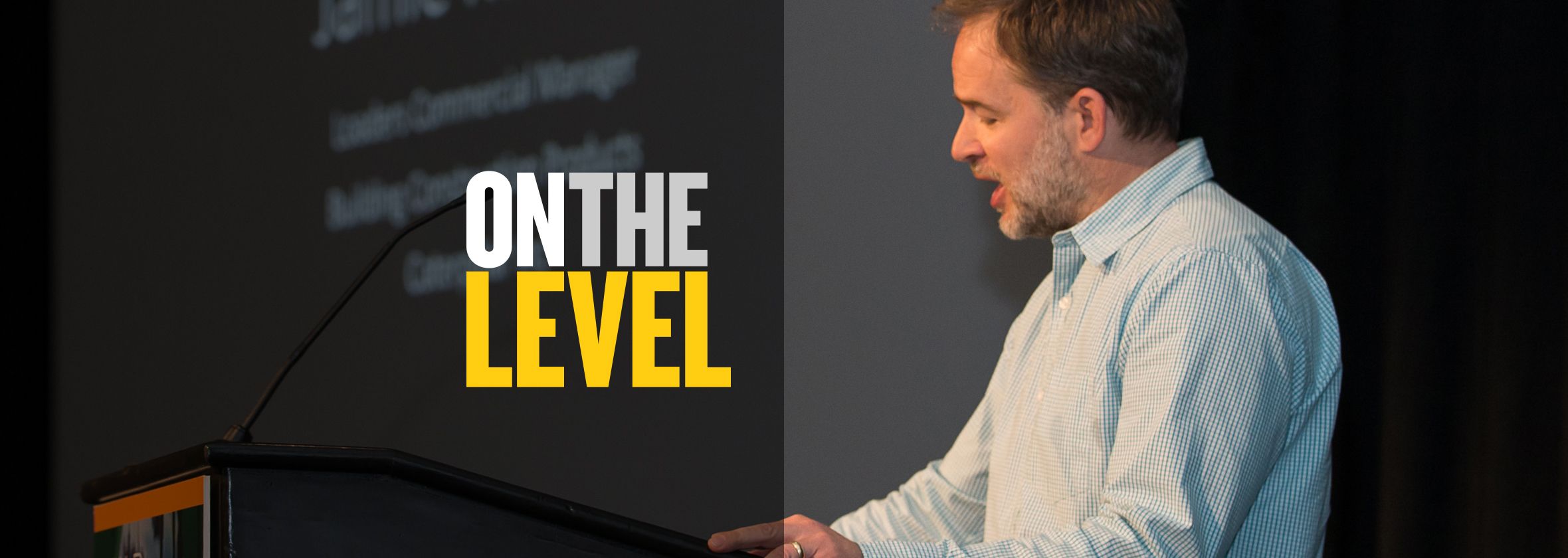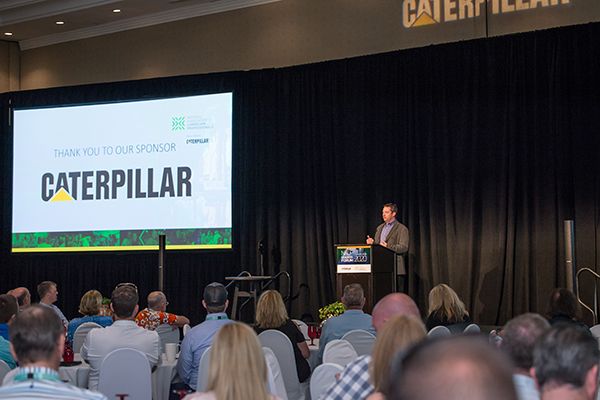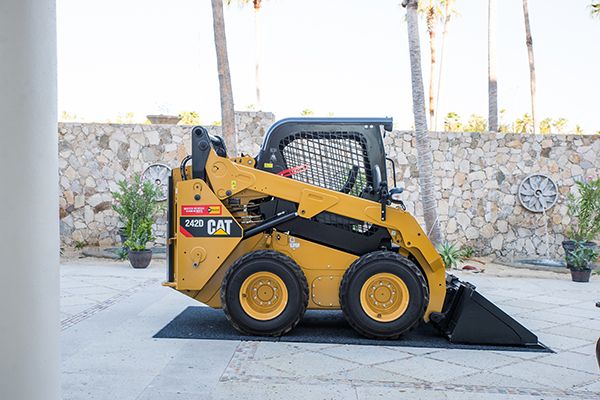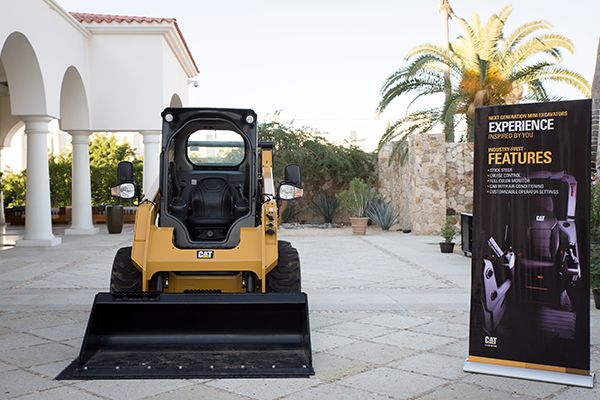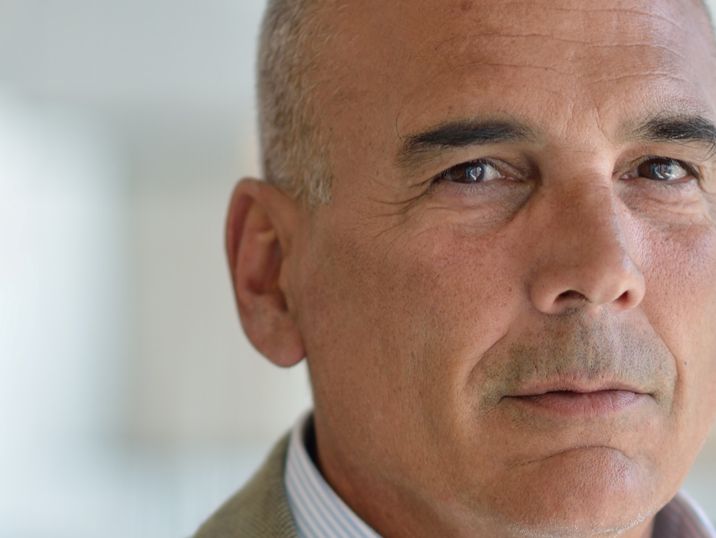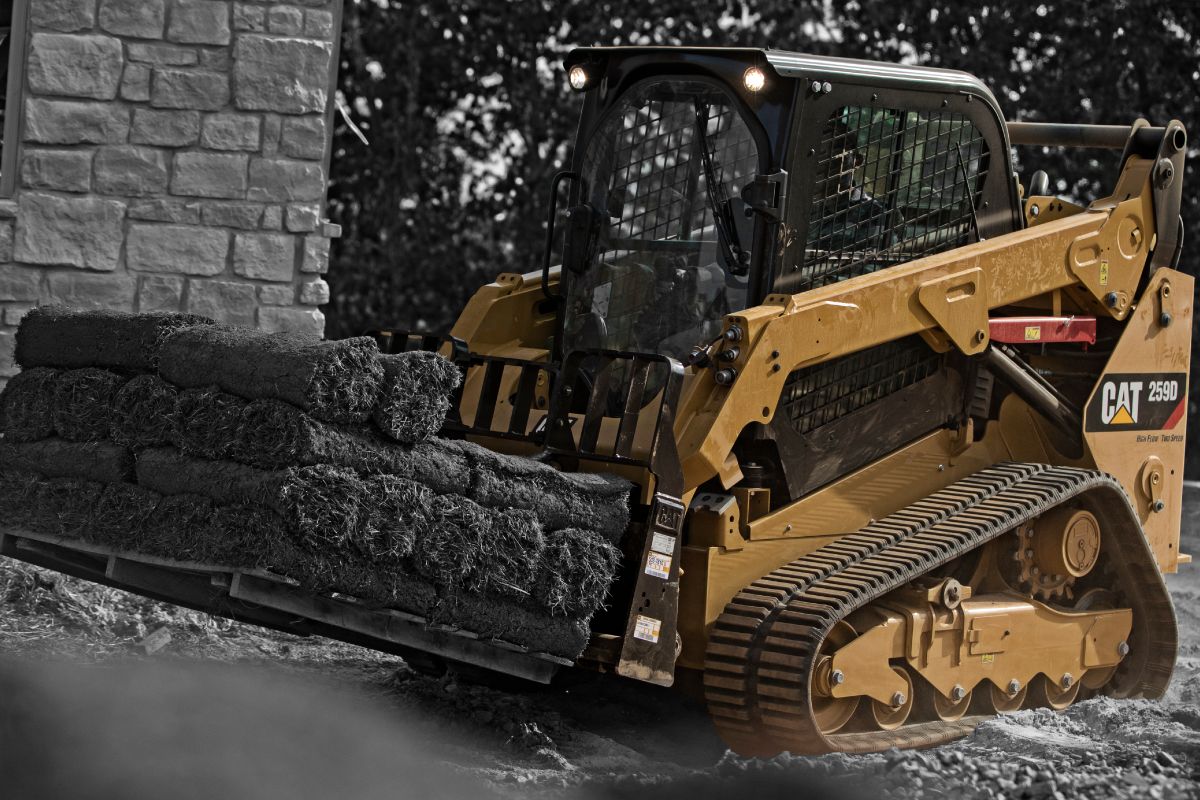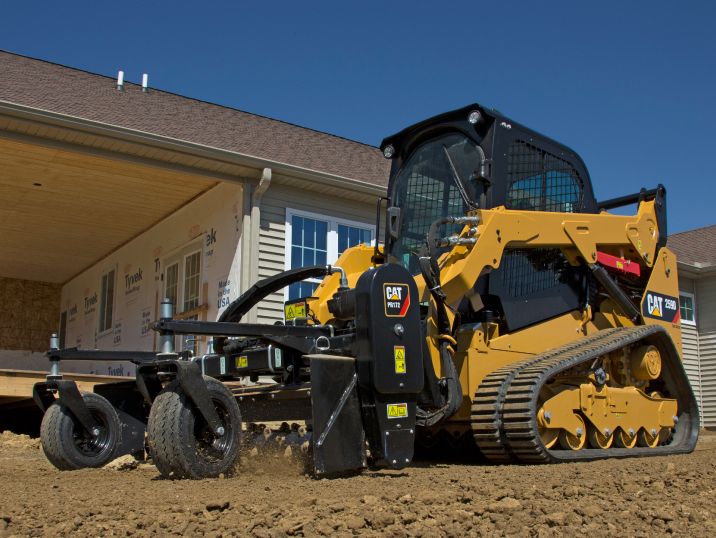

Sign In
Welcome! Sign In to personalize your Cat.com experience
If you already have an existing account with another Cat App, you can use the same account to sign in here
Register Now
One Account. All of Cat.
Your Caterpillar account is the single account you use to log in to select services and applications we offer. Shop for parts and machines online, manage your fleet, go mobile, and more.
Account Information
Site Settings
Security
Building a Winning Company Culture
NALP Leaders Forum 2020 Recap
John Janes | Landscaping Marketing Manager
We recently sent some of our product and industry experts to the NALP Leaders Forum in Los Cabos, Mexico, with a great group of innovative and successful landscaping business professionals. This event allows us to meet with landscape and lawn care business owners from all over the country at a conference that combines collaborative education with networking. We enjoy the discussions of the issues being faced in the industry and how we’re all looking to grow in the coming year.
NALP always brings in some great speakers and this year was no exception. Bruce Turkel was the keynote, sharing his experience and advice on branding. Ross Bernstein talked about what comprises the DNA of a champion. And from Caterpillar, we sent Jamie Kovicak, our Loaders Commercial Manager, who spoke about company culture and why it’s one of the most impactful aspects of building a winning team (and a winning business).




Why discuss company culture at a landscaping conference?
The NALP’s Industry Growth Initiative is leading the industry’s efforts to attract 100,000 women and men to the profession by 2025. Jamie asked the audience the tough questions: How are you going to do that? What kind of people are you looking for? Why do you think they’d want to choose this industry over another? And the big one: Why would they want to work for your company?
We’re all faced with ongoing and ever-changing challenges associated with finding, hiring and retaining employees. In 2017, it’s estimated that 71,000 full-time jobs went unfilled in the industry, and NALP Foundation research shows that the industry is looking to fill 300,000 positions each year. Recruiting and hiring are the #1 concern for about 65% of NALP business leaders.
You have probably heard all kinds of things about Millennials, but guess what? Gen Z is here and they’re changing the rules of the game once again. Research shows that they’ll comprise about 36% of the workforce by the end of 2020, so it’s time to evolve and adapt as employers to make sure you gain and retain the top talent.
What do we know about Gen Z?
- 93% say a company’s impact on society affects their decision to work there
- 91% say technology would impact their interest in working at a company
- 77% say the diversity within a company affects their decision to work there
- 76% are willing to start at the bottom and work their way up
- Gen Z’s top three “must haves” for their first job are:
- Health insurance (70%)
- Competitive salary (63%)
- A boss they respect (61%)
- 75% want their work to have meaning
- 67% are comfortable with having their manager check in with them for 5 minutes or less
What do you think after you read those statistics? Does any of that surprise you? Does what you’re offering in terms of company culture and career opportunities match up with those expectations?
How can you use company culture to attract the best talent and grow future leaders?
Businesses that can align their company culture to workforce expectations are going to attract the best talent, retain loyal employees, and end up with successful and dynamic future leaders for their companies and industry.
Look again at those Gen Z statistics and think about whether you are purposefully making your company a desirable place of employment. How much time do you spend on your company culture vs. the daily operations of your business?
Why is company culture so important?
Only 17% of companies feel they have a compelling and engaging employment brand. Company culture is contagious – it's a group phenomenon. It can’t exist solely within a single person, but it’s also not the average of individual characteristics. It’s a group of shared behaviors, values and assumptions that’s most commonly experienced through what we would call the unwritten rules – the norms and expectations of a group of people.
Ask yourself these questions:
- Do you know what your company culture is?
- What would your employees say about your business/brand? What would (or do) they tell others?
- What is it about your company culture that allows your business to succeed?
- If you left today, would your company continue to be successful?
At the Leaders Forum, Jamie touched on four components of company culture that he’s been able to trace through several life experiences – components that are so compelling that they become a part of peoples’ identities in the long run.
- Common mission
- High expectations, attitude, optimism
- Extraordinary effort
- Sense of community
Or, as Jamie put it, “Culture is that unifying something extra that compels people to rally to a common cause, do extraordinary things, put in the extra effort and try to recruit others to the community.” What’s needed to start that phenomenon is a leader, or leadership team, who will make cultural change a real priority within an organization. Leaders who can recruit and inspire. Leaders who can encourage, as well as roll up their sleeves, to create that sense of community.
What is your company culture like?
At Caterpillar, we’ve built a community around our focus on safety and employee well-being. In shift meetings, boardrooms and teleconferences worldwide, you’ll hear us open with mantras like “Safety first, quality always,” “Be safe, be present and win the right way,” or “I care about everyone’s safety and believe every injury is preventable.”
We also believe each person is unique and valued, and that every single employee moves us forward – piece by piece, part by part, person by person. Our workplace is diverse and representative of the customers we serve worldwide – and diverse perspectives help us achieve our best work. Each of us strives to do work that makes positive change in the communities where we live and work.
This is the commitment that Caterpillar makes to its employees, along with leaders who are expected to live and model the same for their teams every day. We aren’t just accountable for the work we do; we also care deeply about how we do it.
Lastly, we make sure our employees are aware of the company’s commitment to them as individuals, in addition to the importance of their future at Caterpillar. We have a specific focus on people: develop talent at all levels; know the importance of their rich diversity, skills and perspectives; ensure an inclusive work environment; and more.
Attractive company cultures get the best efforts out of employees.
We all want to build or participate in something we can be proud of. If you think back on meaningful experiences, teams or organizations you’ve been a part of, those company cultures will likely have more similarities than differences. As you’re working on your own company’s 2020 goals, and as we all work toward the NALP Growth Initiative, remember to bring some focus to your company culture.
So, what's your company culture like? Spend some time to get your business primed and ready to attract the best and brightest coming into the industry this year. We’ll be here to help you do the work.

John Janes
Landscaping Marketing Manager
John Janes has been bringing his diversified expertise to sales and marketing initiatives at Caterpillar for more than a decade. Not only does he hold an LIC certification from the National Association of Landscape Professionals (NALP), CSP and ASM certifications from the Snow & Ice Management Association (SIMA), but Janes also serves as an American Concrete Institute (ACI)-certified concrete flatwork technician.
RELATED ARTICLES
You’re here to get ideas to grow your business. Read on for machine insights and expert tips and tricks to get more out of every job.
-
On The Level: Landscaping Blog
Get key industry insights, tips and updates from Caterpillar product experts and industry professionals in our On The Level Landscaping Blog.
Learn More -
Creating A Video Content Marketing Plan
Landscape business owner, Tom Gardocki, shares how you can use a video content marketing plan to help your business grow.
Learn More -
Solutions for Landscaping Labor Shortages
If landscaping labor shortages are impacting your business, look to Caterpillar for practical solutions to keep your business running strong.
Learn More
